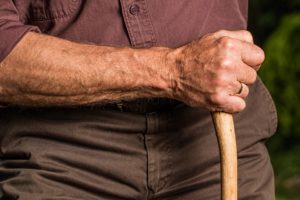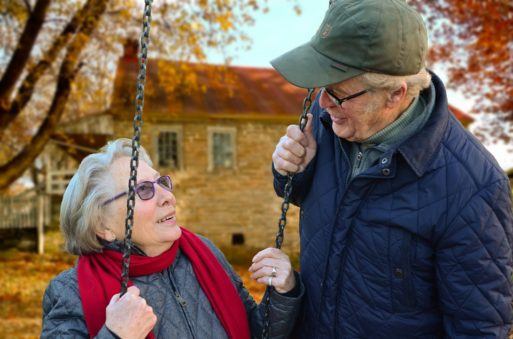An estimated 22 percent of Americans over the age of 65 are at risk of becoming “elder orphans,” according to a recent study. Elder orphans are individuals who don’t have younger family members, friends or spouses to rely on for support as they go through the aging and dying process. These 43 million Americans are learning how to age alone in a system that still focuses heavily on family support.
More people in the Baby Boomer generation have chosen to remain unmarried and childless than in the previous generation, and experts say that this will impact the kind of care that they receive as they age. Studies have found that people who live alone are more likely to experience a decline in cognitive abilities and are at an increased risk for heart disease and mental illnesses such as depression or anxiety.
In addition, many people who live alone lack the resources of those living with extended family. For instance, elder orphans might not have a family member for doctors to contact in case of an emergency. Unless the patient has a detailed advance directive that doctors can access, hospital staff likely won’t be aware of their end-of-life wishes. Many elder orphans don’t have advocates to help them navigate treatments for terminal illnesses, surgeries or even basic preventative care.

Credit: Pixabay.com
Doctors point out that anyone can become an elder orphan, not just those who choose to age and die alone. Some people over the age of 65 have lost their spouses at young ages, or have lost children. In addition, people who live to see their 100th birthdays are less likely to have a support system as they age because many of their friends and family members died before them. The longer people live, the more likely they will become elder orphans at some point.
However, elderly care experts add that being an elder orphan isn’t always a negative experience. Just because you don’t have a spouse or children to care for you as you age doesn’t mean that your aging experience will be a miserable one. Experts suggest following a few simple steps to learn how to age and die alone:
- Talk to the people you know about your situation. Tell your friends early-on about your plans, and discuss your home life with your doctor. This gives you a basic support system from the start.
- Get a plan together as soon as possible. Prepare your will and advance directive detailing your medical wishes planned in advance. Give a copy to your physicians, friends, lawyers and anyone else who will likely need the information.
- Maintain your friendships. The more you isolate yourself from others, the less likely you’ll have advocates who will help you if you become ill. Try to make new friends whenever possible, and keep up a vibrant social life.

Credit: Pixabay.com
- Find a proxy. Identify the person (or people) who you trust the most. Then ask them if they will be your advocate in case of an emergency.
- Make sure your living situation is healthy and sustainable. If you’re worried about losing mobility, don’t live in a home with a large staircase. Live in a neighborhood where you have easy access to transportation and basic amenities. You can easily live alone as long as you plan for convenience, even in the event of a loss of mobility.
- Prevent health problems from the start. When you live alone, it becomes even more important to exercise regularly and eat healthy foods. The longer you can prolong preventable diseases, the better your quality of life will be. And you will be less likely to need a health advocate in the next decade.
Making the decision to live alone can be an empowering one, but it doesn’t come without risks. As long as you prepare for the future, you can still receive the healthcare you need, and have a positive aging and end-of-life experience.

 How to Age Alone in the Era of “Elder Orphans”
How to Age Alone in the Era of “Elder Orphans”



 How to Comfort A Dying Loved One
How to Comfort A Dying Loved One
 Our Annual Seven Holiday Gifts for Someone Who Is Grieving, 2024 Edition
Our Annual Seven Holiday Gifts for Someone Who Is Grieving, 2024 Edition














